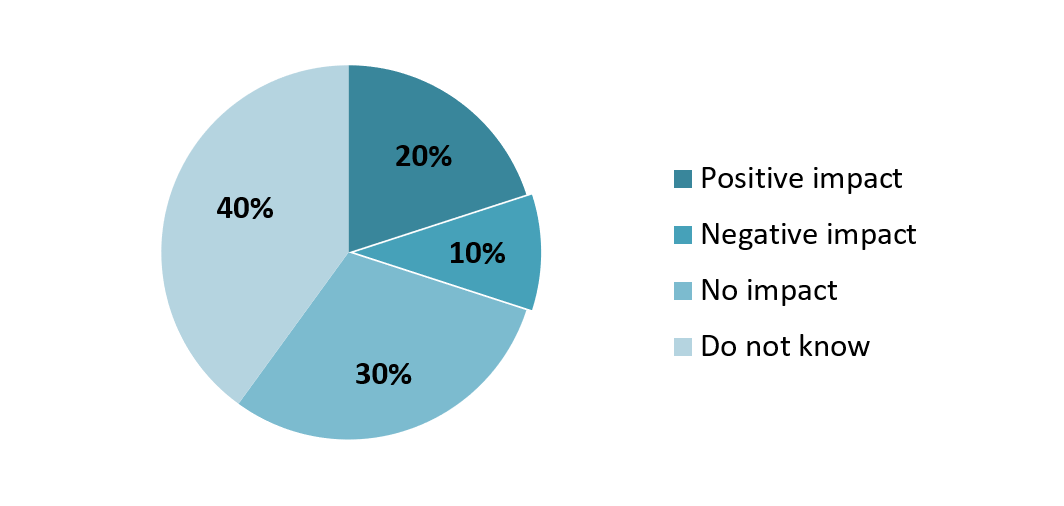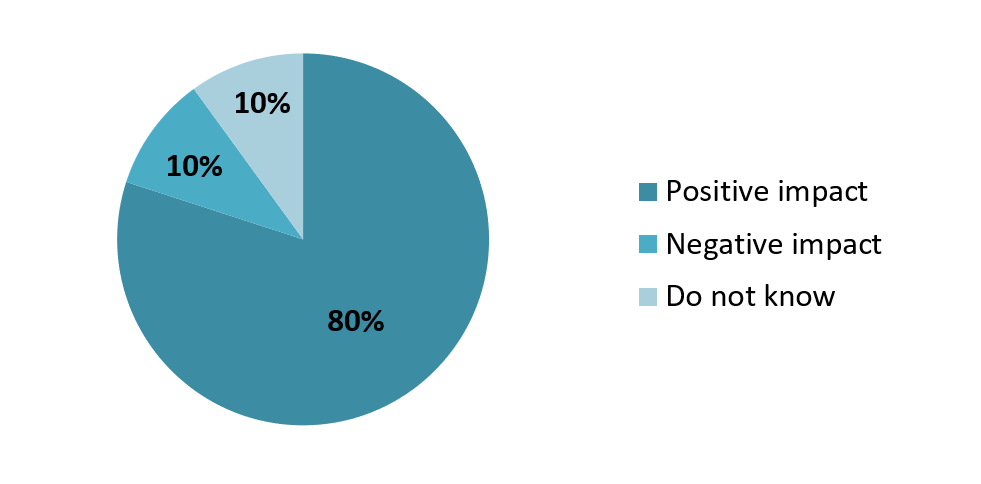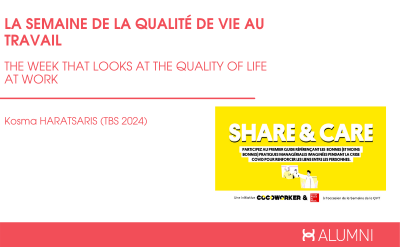
Sandra Lansade (TBS 2021) : does remote work keep its promises ?
Sandra Lansade (Executive MBA TBS 2021), devoted her thesis to the new ways of working and in particular the remote work. Today, she wishes to share with us the results of her study based on a survey of experts and Human Resources managers operating in companies of various sizes and sectors.
Fewly developed until then in France, the practice of remote work suddenly accelerated during the recent COVID-19 sanitary crisis. Implemented urgently and in a sustained way, the large-scale forced experimentation made it possible to highlight the « pros and cons » of this new way of working and to challenge managerial practices and organizational models.
While being a transformation catalyst in many ways, is remote work however a driver of performance and of attractiveness for companies? What are the major impacts of this new way of working ?
First notable change : the despatialization induced by remote work. The office is no longer the only place of work; the home becomes a workspace like any other, just like coworking spaces or third places which are now increasingly open to employees. The heart of the company is also changing with the development of desk-sharing or flex-office, both of which are based on optimizing office space. Among the companies surveyed, 73% have - or will - rethink their office spaces and 36% of them will implement flex office, which confirms that remote work is leading companies to rethink their workspace.
Besides, working remotely involves managerial practices based on trust, fostering employee empowerment and autonomy, forcing managers to focus on objectives and associated results - and not on tasks and presenteeism. All of this in a communication style renewal to adapt to the digital era.
Organizations must also adapt by offering new processes and tools. But above all, remote work leads them to review their values, their strategy, and their way of managing. Many of them, more specifically the larger companies, have made the choice to implement organized and chosen remote work. The study shows that most companies are opting for measured remote work; 2 to 3 days on average, which already represents a notable increase compared to preCovid-19 practices. Aware of the strong societal expectations in this area and moreover driven by the need to retain talent, companies are standardizing this practice, even though the effects on performance still need to be verified. Trends can be indeed observed but it is too early to draw conclusions.
The HR manager of a transport company in the tertiary sector points out that "there are still a certain number of effects that we are not able to measure because we do not yet have enough perspective, particularly on a cultural standpoint».
Thus, of the ten HR managers interviewed :

No one is firmly committed to saying that the overall performance has been improved because it remains very difficult to measure ; moreover the experience achieved during the ‘COVID’ period is very different from normal operation. The HR manager of the transport group affirms:
« I am not convinced that it will increase the overall performance of the company but at least it will maintain it. I don't think there is a loss of performance […]. On the other hand, I am convinced of the benefits on individual motivation as long as it is brought closer to a collective and on the retention of talents and the attractiveness of the company.»
Conversely, the experts are unanimous in saying that the impacts in terms of attractiveness are positive for the company.
As for the HR managers :

It also emerges from the interviews that remote work is an important criterion in the choice of a new position for employees. Thus, one of the first questions asked in the interview relates to the remote work company's policy, in particular among the younger generations.
Sectors with a large majority of the population who cannot telework are very sensitive to the question of equity and are therefore generally more weighted in the implementation of remote work: "Remote work: yes, but not at any price" reveals to me an HR manager of a large aeronautical group.
Same observation in the field of the hotel industry: “I think that the challenge is on the side of companies that cannot afford to use telework […]; how to deal with this change in society when you have an activity with positions requiring an increased presence, very long working hours. In the hospitality industry, this is a big concern.”
Remote work facilitates recruitment, and makes it possible to attract rare profiles in particular (e.g. 'full remote' for high-tech jobs in tension). In other words: the company that does not offer it takes the risk of a lack of attractiveness. Companies today consider it as a ‘must have’ even if they do not always see their immediate interest : “Doing it won’t help us, but not doing it will hurt us. » HR manager of an aeronautical group; “A company today which […] does not have an agreement on telework, I think it is shooting itself in the foot and it is not even possible anymore. », HR manager of an engineering consulting group.
In conclusion, if the benefits, for the company in terms of attractiveness and for the employees in terms of wellbeing at work (subject to certain implementation conditions), seem to be demonstrated, the question therefore remains relative to performance. Successful remote work relies above all on compliance with good practices, support for managers and employees, and specific monitoring through key performance indicators.
Finally, this study shows differences in the implementation of remote work depending on the size of the company, the sector - industrial or tertiary, and the field of activity. From an attractiveness standpoint, those differences have not yet been measured. From a performance standpoint, more time and research will be required to definitely assess whether or not the remote work keeps its promises.
To find out more, do not hesitate to contact Sandra.
 2
2














No comment
Log in to post comment. Log in.